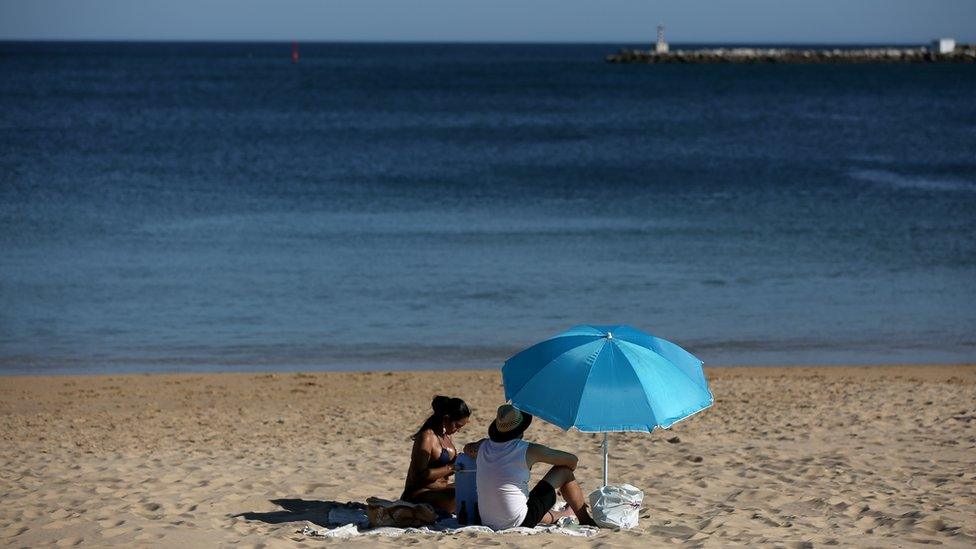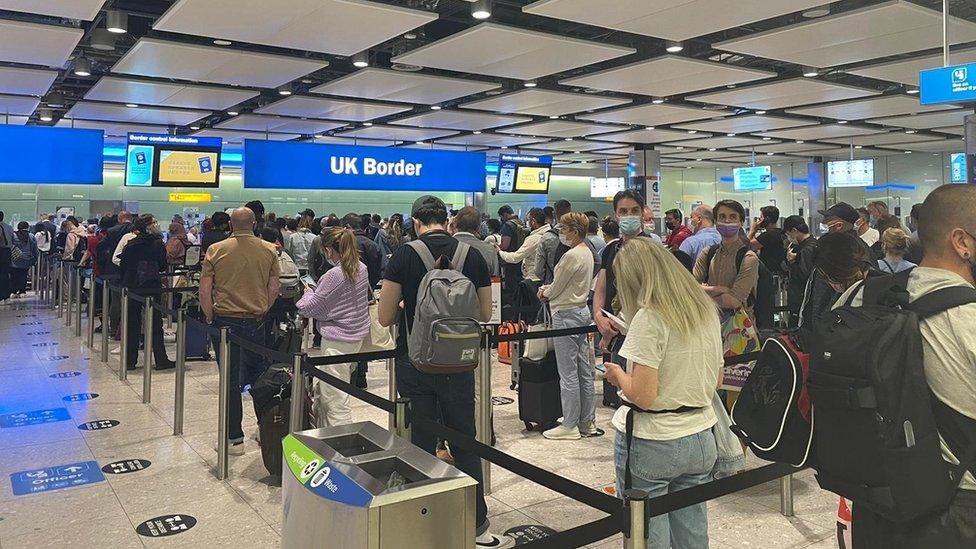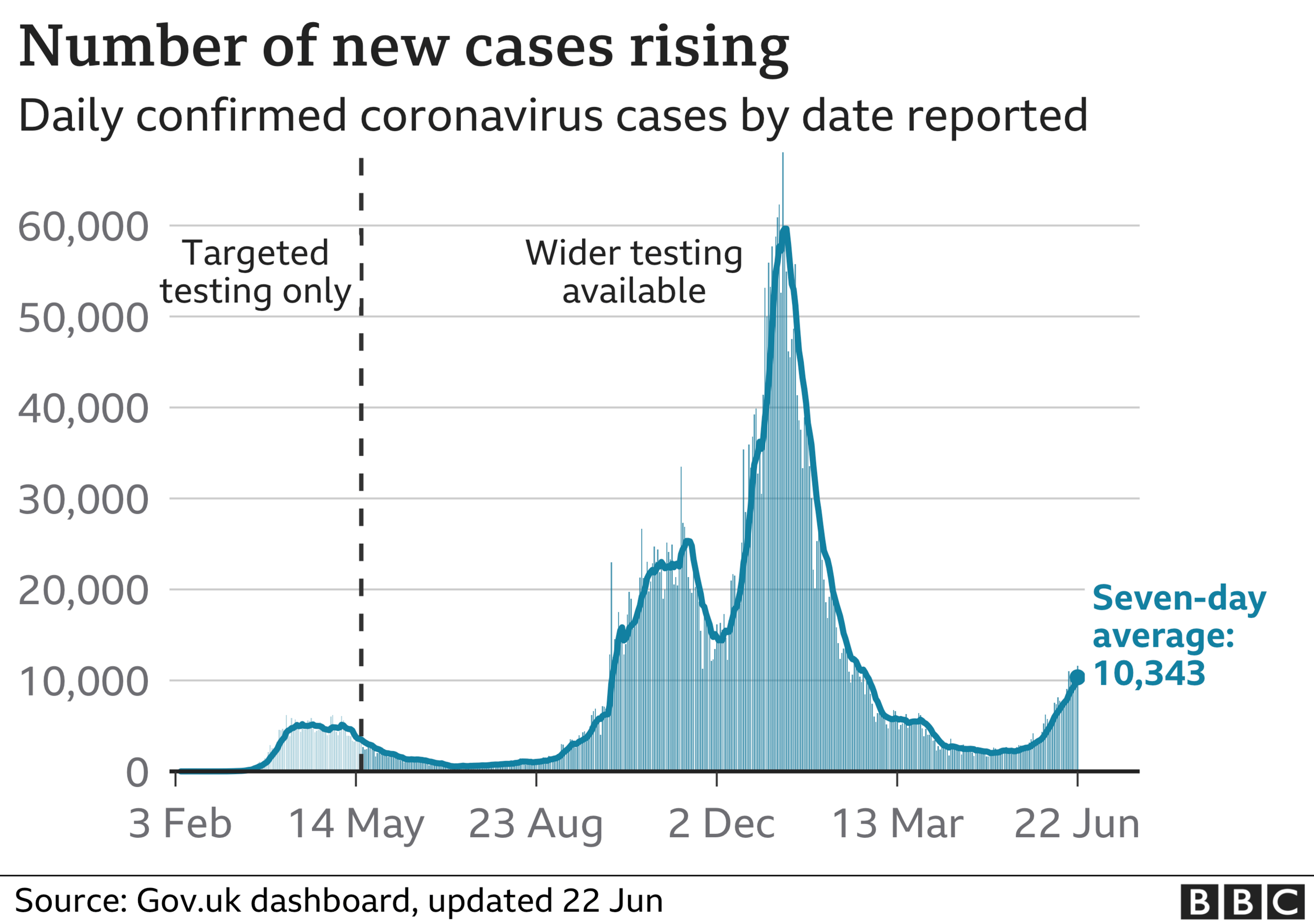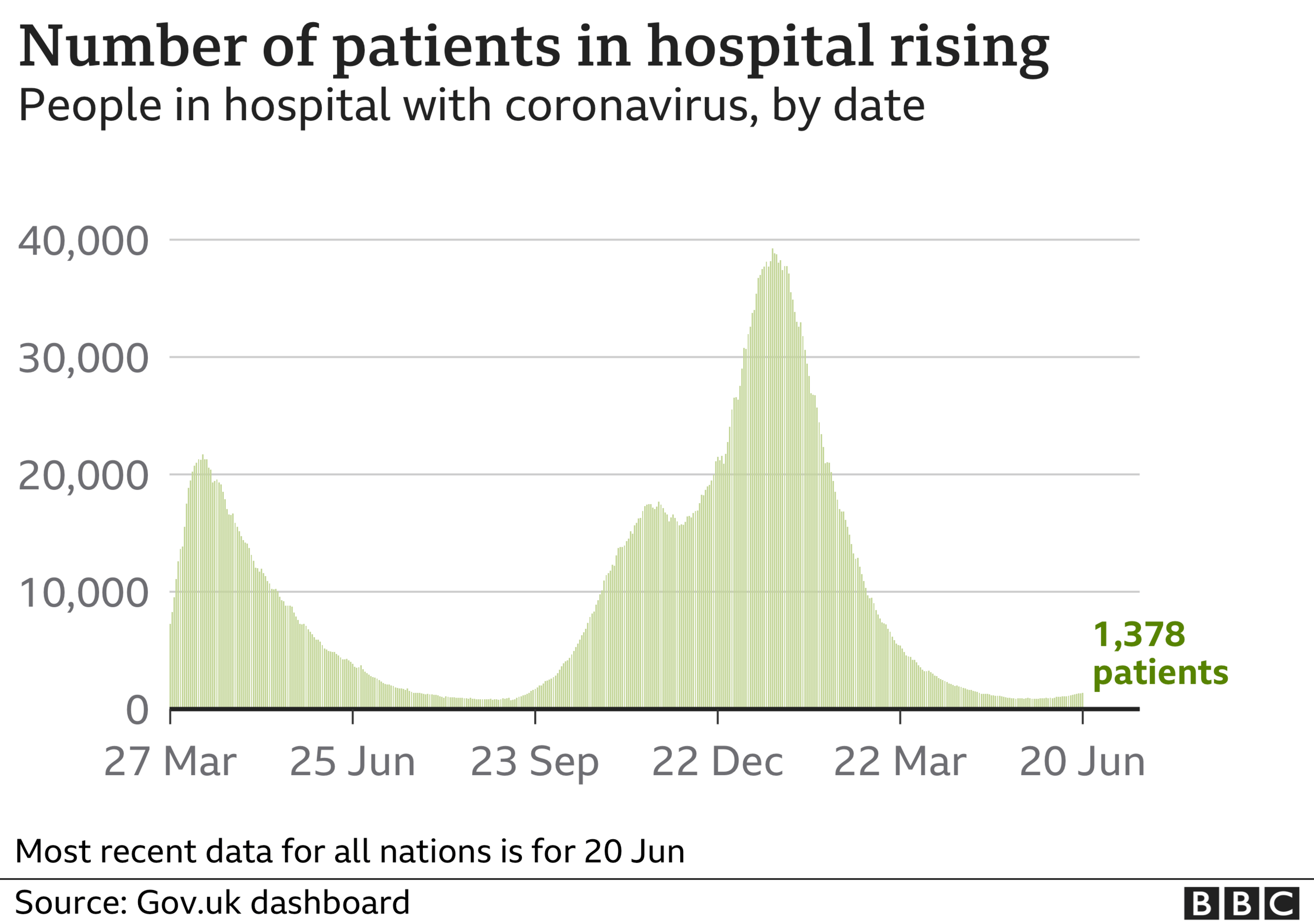Covid-19: Aim for double-jabbed arrivals to avoid quarantine - Hancock
- Published
- comments

Ministers are "working on" plans for quarantine-free travel from amber list countries for people who are fully vaccinated, Matt Hancock has said.
He said the plans for England had not been "clinically advised yet".
But the health secretary said the government was looking at plans to allow the vaccine to "bring back" some freedoms.
Currently travellers arriving from countries on the red or amber travel lists have to isolate for 10 days.
Asked on Sky News if the measure could be in place as soon as August, Mr Hancock said: "We'll get there when it's safe to do so."
International Trade Secretary Liz Truss told BBC Radio 2's Jeremy Vine she would not speculate about what was going to happen in terms of travel, but said the government was looking at what it could do to "ease up requirements where it makes sense".
She said: "We're not ready to make an announcement yet, but fundamentally what we need to do is - while keeping people safe - making sure we're freeing up the rules as much as we can."
Responding to Mr Hancock's comments, Green MP Caroline Lucas, vice-chair of the All Party Parliamentary Group on Coronavirus, said scrapping quarantine measures would be "reckless" and called for the government to focus on upgrading systems at airports.
"The Delta variant first arrived here in the UK precisely because of inadequate pre-travel requirements and health checks at UK arrival halls, compounded by a lack of support and enforcement of mandatory quarantine," she said.

Long queues were reported at the UK border at London's Heathrow airport on Tuesday evening
Under the current rules for England, arrivals from red list destinations such as India and South Africa must isolate in a government approved hotel for 10 days.
Those coming from amber countries must quarantine for 10 days, with tests to be taken on days two and eight after return, but they do not need to be in a hotel.
It may be possible to end quarantine early in England by paying for an additional test under the test-to-release, external scheme.
The vast majority of countries are on the amber list.
Arrivals from the few green list countries - which includes a small number of countries including Israel and Iceland - do not have to quarantine but must book a test for day two of their return.
Scotland, external, Wales , externaland Northern Ireland , externalare following similar rules.
Five ways to self-isolate successfully to prevent the spread of coronavirus
Andrew Flintham, from travel firm Tui, said it had become an interested party in the legal action taken against the government by Manchester Airports Group, alongside Ryanair, British Airways' parent company IAG and Virgin Atlantic about how the government manages and publishes the green travel list.
"At the time of the last country review, many destinations such as Malta, the Greek islands and the Balearics had much lower rates than the UK," he told a conference organised by the Association of British Travel Agents (Abta).
"It was inexplicable as to why these were not added and instead Portugal was moved straight from green to amber, without the slightest sign of stopping at the much-vaunted green watchlist."
Mark Tanzer, of Abta, urged ministers to "put aside any misguided prejudices against outbound travel".
He added that the amount of state support given to travel firms is "way behind" the situation in other countries.

On Monday, the prime minister said the government was considering allowing double-vaccinated travellers to be exempt from quarantine on their return to the UK if they took daily tests.
Transport Secretary Grant Shapps said he was "cautiously hopeful" about being able to lift some restrictions on international travel as a result of the vaccine programme, with the next "checkpoint" taking place on 28 June.
The health secretary told BBC Radio 4's Today programme that England remained "on track" for the relaxation of coronavirus restrictions on 19 July, with case rates "slowing" and hospitalisations "not rising quickly".
He said the number of people dying from Covid in England remained "very, very low" and said this showed the "vaccine was working".
Mr Hancock also warned that the coming winter could be "challenging", but said that he hoped the government would not have to bring back restrictions.
More than 43.1 million people (81.9% of the population) have had a first dose of a Covid vaccine, and nearly 31.5 million (59.8%) have had a second, according to the government's coronavirus dashboard., external
The UK has reported a further 27 deaths within 28 days of a positive test on Tuesday, and another 11,625 cases.
The Office for National Statistics said infections were continuing to increase in England but the "trend is uncertain" in Scotland, Wales and Northern Ireland.


The number of hospital admissions for Covid has jumped by a third in the last week with the latest data showing four consecutive days of more than 200 admissions.
A month ago we had three days of under 100 admissions so the change is very clear.
But that just tells you part of the story. Ministers have spoken about vaccinations breaking the link between cases and hospitalisations.
That has not happened, but it has certainly been weakened.
During the winter wave around 10% of infections being diagnosed ended up in hospital 10 days later.
Currently it looks to be around 3%. That is a significant difference. But it still means if infection rates keep climbing as they are we could see in excess of 1,000 admissions a day later in the summer.
That is what the NHS would expect to see in the depths of a bad winter for all types of respiratory illness.
The hope is that the "wall of immunity" built up by the vaccination programme will kick in before we reach that point and help reduce infection levels and then admissions.




HEROIN, SAILORS, SPOOKS AND LIES: The thrilling story behind an international drug plot
TWAYNA MAYNE: Hilarious stand-up exploring gender and sexuality in a quest to understand her Black British identity

- Published11 February 2022

- Published21 June 2021
